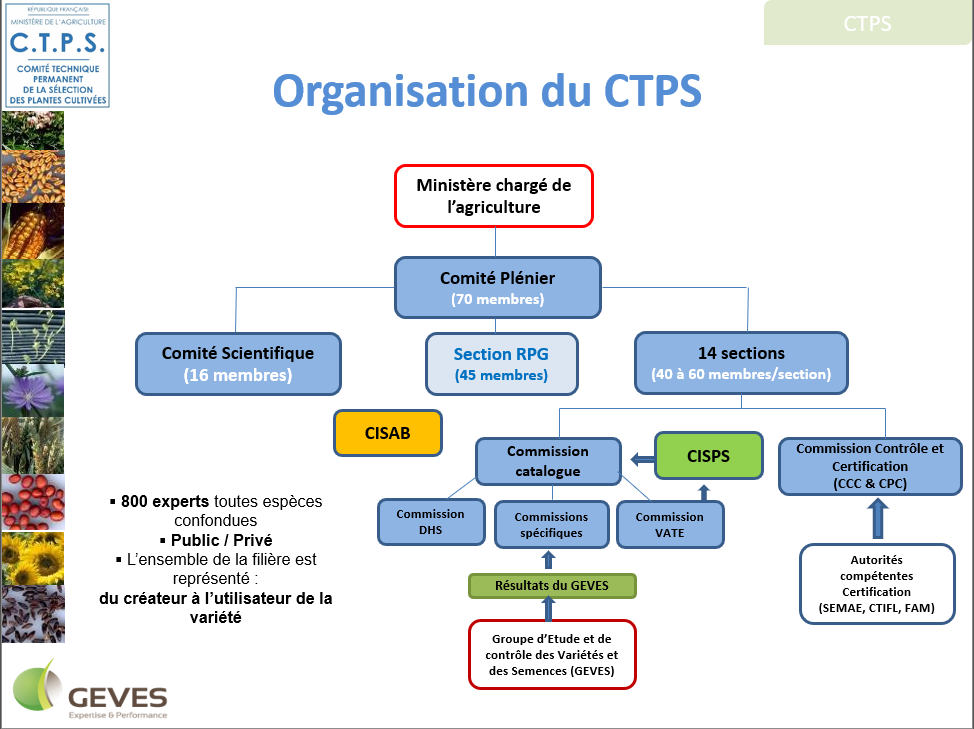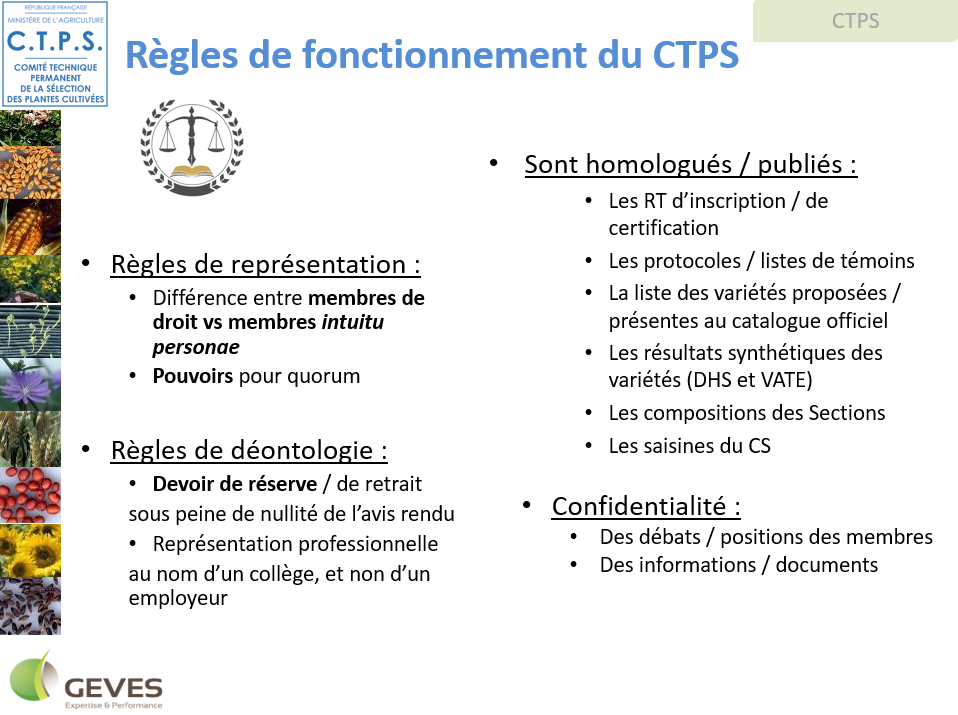The CTPS - Organisation
The CTPS represents more than 800 scientific and technical experts who contribute to public policy work and guidance on innovation and genetic progress.
- A Plenary Committee responsible for coordinating and guiding the activities of the various CTPS bodies and for regulatory developments. It meets at least twice a year and brings together around 60 representatives from various branches of the public and private sectors with an interest in varieties, seeds and plants.
- A Scientific Committee which, in the field of variety selection and seed production, formulates opinions and recommendations on the latest scientific advances that may have an impact or applications for the selection or evaluation of varieties and seed quality. Composed of 16 scientific figures from the public and private sectors, it meets once a quarter to examine referrals from the Plenary Committee or the Ministry. It also supports the Sections and assists them in transitions.
- Fourteen specialised sections by species group: Forest trees, Fruit species, Beet and industrial chicory, Straw cereals, Rapeseed and other cruciferous plants, Flax and hemp, Maize and sorghum, Fodder and turf plants, Ornamental, perfume, aromatic and medicinal plants, Vegetable species, Protein crops, Potatoe, Sunflower and soya, and Vine. These sections are responsible in particular for:
- processing applications for registration in the French Catalogue.
- monitoring regulatory developments for each species: Catalogue, certification.
- contributing to the direction of research for plant breeding.
- The “Plant Genetic Resources” Section is of common interest to several species or groups of species and relates to the conservation of plant genetic resources (PGR). As part of its mission to support the State, it is responsible for issuing opinions on:
- The recognition as a “manager of a collection of plant genetic resources for agriculture and food”.
- The heritage resources to be included in the national collection.
- The implementation of European Union regulations and directives concerning plant genetic resources.
- Two Inter-Section Committees:
- The VSCU Inter-Section Commission on Service Plants (CISPS) is responsible for studying the Value for Sustainable Cultivation and Use (VSCU) of varieties that are candidates for inclusion in the official French Catalogue under the heading “Service Plants”. Given the diversity of species potentially concerned by this type of use, this Commission brings together a wide range of expertise, both in terms of knowledge of the species and their agronomy, and their ability to provide the services claimed.
- The Inter-Sections Commission dedicated to Organic Agriculture (CISAB) is responsible for promoting the registration of varieties suitable for organic farming (AB) with the aim of identifying the needs and shortcomings of organic farming for different species in terms of varieties, seeds and plants, and to enable the French Catalogue to offer varieties suitable for organic farming that are clearly identified as such.
Each section is made up of 30 to 50 members representing the public and private sectors involved in the creation, distribution and use of varieties, seeds and plants. They are led by a chairman and a technical secretary, who are members of the Plenary Committee, and meet several times a year. Each Inter-Section Commission is led by a chairman and a technical coordinator and works closely with the specialised sections.
The CTPS - Organisation








